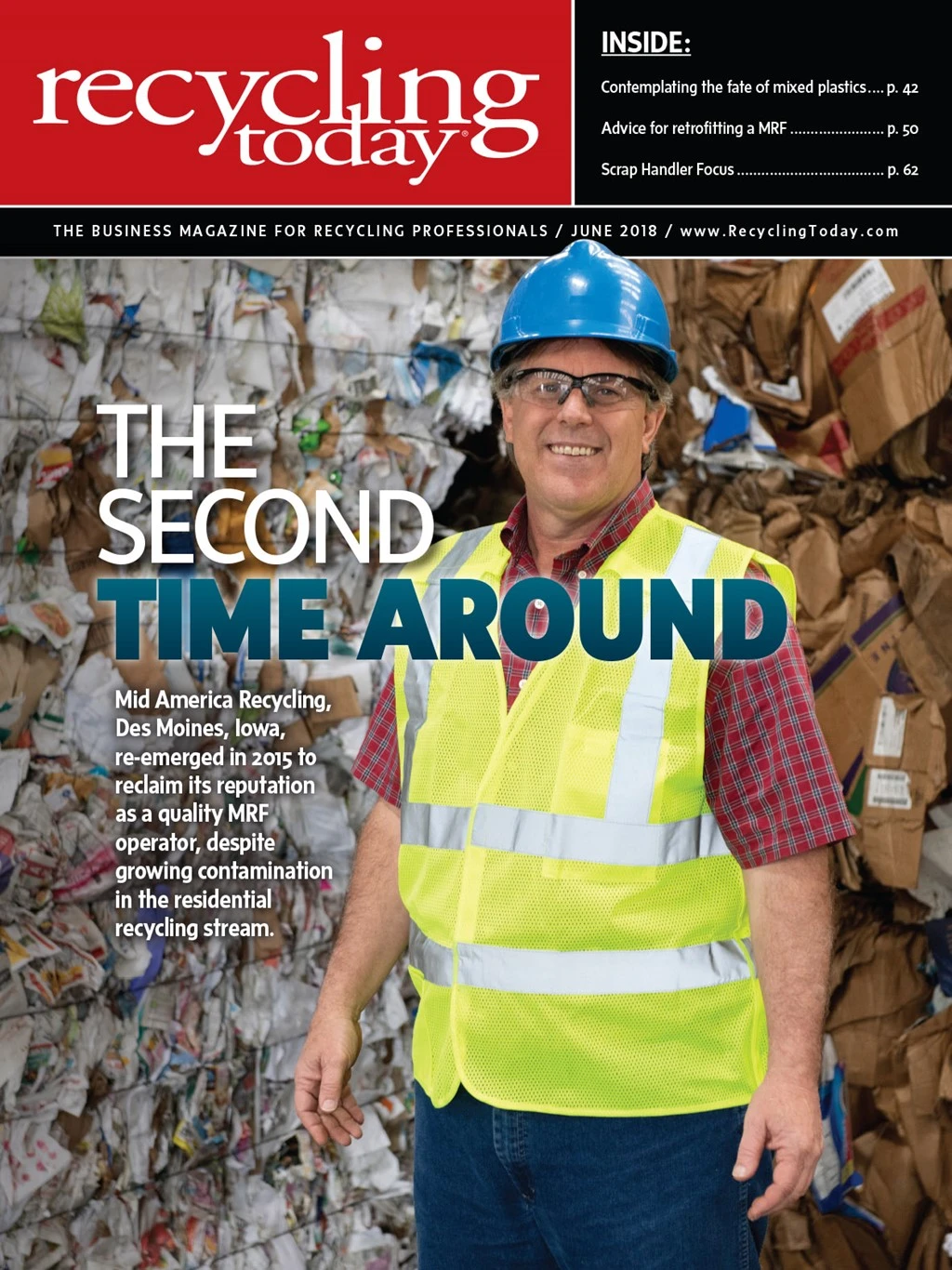China announces import ban on an additional 32 scrap materials

China’s Ministry of Ecology and Environment (MEE) announced April 19, 2018, that China will ban imports of 32 additional types of scrap materials (which the MEE labels as “solid waste”).
Sixteen materials, including scrap metals considered “Category 7,” such as motors and wire and cable scrap, will be banned from import beginning Dec. 31, 2018, MEE says in an online announcement (in Chinese). The country also will ban imports of industrial plastic scrap as of that date.
Another 16 types of scrap, including some forms of stainless steel, will be banned beginning Dec. 31, 2019.
The full list of banned materials is available online (in English) at https://bit.ly/2I7ObWF.
The new policies follow earlier announcements to prohibit 24 categories of recyclables beginning Jan. 1, 2018, and the imposition of tighter quality standards on all scrap imports beginning March 1, 2018.
China began importing secondary raw materials in the 1980s and subsequently grew to become the world’s largest importer of recyclables.
The Chinese government began taking action to phase out such imports in 2017, citing environmental concerns. Many recyclers and policy analysts, however, sense protectionism in the moves because China’s government has indicated it is taking measures to replace the imports with domestic resources before the end of 2019.
In response to China’s announcement, the Institute of Scrap Recycling Industries (ISRI), Washington, issued a statement from its President Robin Wiener April 19 that reads: “The Chinese government’s announcement will have an impact on more than 676,000 metric tons, worth about $278 million, in U.S. scrap commodity exports to China in the first year and another 85,000 metric tons worth more than $117 million in the second year.”
She continues, “Although we anticipated more import restrictions would be announced, we remain concerned about the effect these policies have on the global supply chain of environmentally friendly, energy-saving scrap commodities and will instead promote an increased use of virgin materials in China, offsetting the government’s intent to protect the environment.”
ISRI says Wiener was scheduled to visit China in late April to obtain additional information on the country’s April 19 announcement as well as on the previous regulatory changes that already have come into effect.
ISRI members can direct their questions regarding China’s actions to Adina Renee Adler, the association’s senior director of government relations and international affairs, at aadler@isri.org.

Explore the June 2018 Issue
Check out more from this issue and find your next story to read.
Latest from Recycling Today
- SABIC’s Trucircle PE used for greenhouse roofing
- Hydro to add wire rod casthouse in Norway
- Hindalco to invest in copper, aluminum business in India
- Recycled steel price crosses $500 per ton threshold
- Smithers report looks at PCR plastic’s near-term prospects
- Plastics association quantifies US-EU trade dispute impacts
- Nucor expects slimmer profits in early 2025
- CP Group announces new senior vice president





